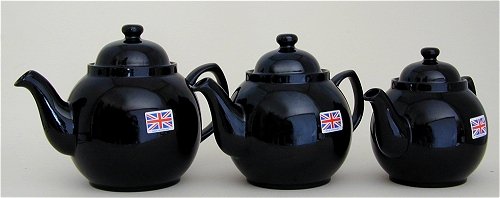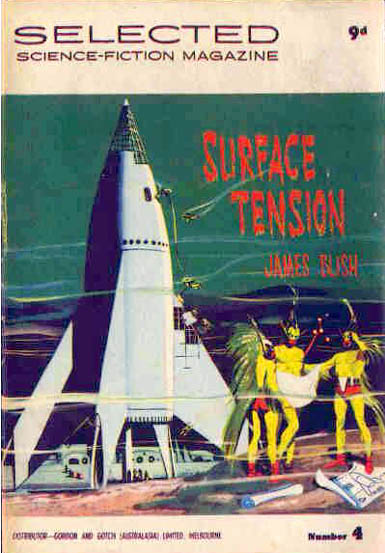
The 2008-2009 list of "banned" books has come out and it's a shame that I got it as a PDF file, because it would have been much more useful as a new set of fire lighters.
Now you might think that as a person who uses the Ingsoc stamp three times a week I'd be a big supporter of Banned Book Week and its ilk and I would be–if it had anything to do with banned books, which this linguni-spined week doesn't.
To me, a book banning means exactly that: The government in the form of an official censor makes the publication of a work illegal, removes it from book shops, libraries, Amazon, and the shelves in peoples homes and if the author is lucky, he'll get off with ending up on the next train across the border with a single ticket instead of a bullet through the back of the head. Or it's some newspaper refusing to cover a story because the local Al Qaeda rep says he'll shorten the staff by a head if they run it. That isn't what we get from the likes of Robert P Doyle et al. Instead, it's a tepid list of books that have been removed from shelves of
school libraries, "challenged" ( i.e. had a parent daring to say "Hey, should my kid be reading about lesbianism, rape and incest in kindergarten?" And not necessarily with any success) in
school libraries, or restricting access
by children to certain books.
This would be risible if it wasn't so cowardly. I mean, we're not talking Voltaire here facing an unscheduled holiday in the Bastille complete with complimentary thumb screws for pointing out that the local lord is using peasant infants as a cheap substitute for turkey. This is a load of people with all the common sense of a pack of spavined voles who somehow imagine that letting six-year olds read
The Joy of Sex in their school library is striking a blow for liberty when all they're really striking a blow for is their inflated sense of self-righteousness.
It's also hypocritical when it comes to the test. If the local school board decided that along with
Catcher in the Rye and
Heather Has Two Mommies the school shelves should also make room for
Mein Kampf, The Turner Diaries, and
Liberal Fascism, I'd say that these champions of liberty would be at the front of the queue to sign the removal petition. Meanwhile, the jails of Cuba, Red China, Burma, Saudi Arabia, and Iran are filled with poor bastards who emailed
National Review when the Stasi was watching and this lot can't even be bothered to look up from their fair-trade lattes.
If the Banned Book people were helping the truly oppressed and censored, I'd be with them, but their sort of standards are so ridiculous that I could claim to be a victim of "banning" because none of the major producers in New York would put on my plays. Since when did having a crappy agent count as a human rights violation?
The Banned Book people have got to step back and look at what these "bannings" in the United States are actually about and that's children. There is nothing wrong with restricting what children read. If you haven't noticed, they're children. As in not adults. They aren't ready for some things yet and exposing them too early is like giving them a highball along with the birthday cake and ice cream. You're not doing anyone any favours. When books are being stocked at the taxpayers expense on school shelves where taxpayers' kids are expected to attend by law, then, yes, parents have every right to question if this or that work is appropriate for
children. The challenge may be without merit, the banning may be a fat-headed decision that should be reversed, but it may also be a prudent judgment to be accepted as such. There is nothing wrong with this in principle. It's called responsibility. If you don't like a book being removed, then argue the merits of the case. That's called using that grey squishy thing between your ears for more than keeping the draught out. I understand this if for no other reason than that I have a seven-year old daughter and I am very careful about what she's exposed to. Eventually she'll be confronted with all the baseness, selfishness, perversions, complexities, and general nastiness of the adult world, but if I have anything to do with it that won't happen until she's ready. To say I have no right to question an attempt by the government in the form of the school librarian to undo do this because that's "oppression" is turning things solidly on their heads.
And I'm not just talking about sex and violence. I sincerely hope that it will be a long time before the hypersexualised popular culture will do anything except fly right over her head and much as I love
Shaun of the Dead, she won't be seeing the likes of
Marvel Zombies while I have a say in it. However, I am also going to do what I can to keep
Moby Dick out of her hands until she's at least eighteen.
Moby Dick? What the devil is wrong with you, Szondy? What's wrong with
Moby Dick–unless you're some Greenpeace nut? We thought it was one of your favourite novels. It is. And the weeks I spent reading it were the happiest of my life. But I didn't read it until I was 28. If I'd read it when I was 14, I'd probably have binned it as boring, overblown rubbish and I'd have hated it for the rest of my life. I wasn't really ready for it in the same way I wasn't ready for a lot of other things until I'd matured enough to grasp what the author was saying. It's a matter of each thing to its proper season. If my daughter took it off the shelf tomorrow, I'd tell her to put it back. If her teacher assigned it tomorrow, I'd ask her to reconsider or give a substitute because I am the final arbiter of my daughter's well being.
As for the posturing, gutless wonders of Banned Books, maybe they should look less to the "censorship" of school libraries that can be circumvented these days with the click of a mouse anyway and spend more time supporting the latter day Solzhenitsyns and Pasterneks of this world or publishers who refuse to publish cartoons out of fear of Jihadists.
I notice that the latter didn't make their heroic list. I wonder why?
 Finishing up our look at manifestations of The Phantom of the Opera we have the 1962 remake by Hammer Films. It's a very different film that strays a long way from the previous two incarnations as well as the original novel, though it does recreate the atmosphere of the book much better while dodging some of the more insane melodramatic bits about flooding dungeons and stores of explosives primed to go off at any second. Where the 1943 version concentrated on the music with the Phantom as essentially a framing device for Nelson Eddy's arias, the 1962 version is more of a Hammer's brand of horror as morality play that centers around betrayal and redemption.
Finishing up our look at manifestations of The Phantom of the Opera we have the 1962 remake by Hammer Films. It's a very different film that strays a long way from the previous two incarnations as well as the original novel, though it does recreate the atmosphere of the book much better while dodging some of the more insane melodramatic bits about flooding dungeons and stores of explosives primed to go off at any second. Where the 1943 version concentrated on the music with the Phantom as essentially a framing device for Nelson Eddy's arias, the 1962 version is more of a Hammer's brand of horror as morality play that centers around betrayal and redemption.

















